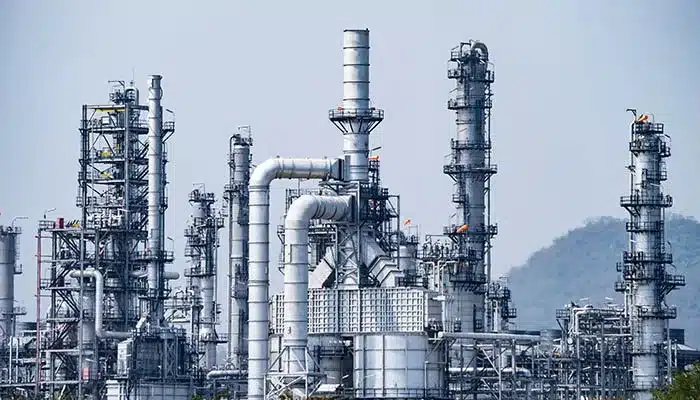In the energy industry, every component counts. A single part that fails can bring a multi-million dollar project to a halt, leading to costly downtime and safety risks. That’s why more and more project managers and engineers are turning away from traditional materials and choosing titanium. It’s not just another metal; it’s a solution to some of the toughest problems in power generation.
Why choose Titanium
When you’re working in the energy sector, you face two main enemies: corrosion and weight. Titanium is built to defeat both.
- It Stops Corrosion Cold:Whether it’s saltwater, chemicals, or extreme heat, titanium simply doesn’t corrode like steel or other alloys. This means parts last longer, need less maintenance, and you don’t have to worry about sudden failures.
- It’s Incredibly Strong, But Light:Titanium offers the strength of steel at nearly half the weight. This makes it easier to transport, handle, and install, especially in offshore or remote locations. Lighter equipment also means less stress on supporting structures.
For anyone managing a project, these benefits translate directly into lower long-term costs and higher reliability.
Offshore Oil & Gas
The offshore environment is brutal. Constant exposure to saltwater eats away at standard metals, forcing frequent and expensive replacements. This is where titanium delivers a clear return on investment.
Consider heat exchangers on an oil platform. Using titanium tubes means the system can run for decades without corrosion-related shutdowns. The initial investment is higher, but the savings from avoiding maintenance, lost production, and part replacement are massive. It’s a one-time fix for a recurring problem.
Beyond heat exchangers, titanium piping, risers, and fasteners provide the same peace of mind. They resist the relentless attack of seawater, ensuring the structural integrity of the entire platform. When you can’t afford a failure, titanium is the material you can trust.
Nuclear Energy Equipment
In a nuclear facility, there is zero room for error. The materials used must be 100% reliable under intense heat, pressure, and radiation. This is why titanium is specified for the most critical applications.
The condensers in a nuclear plant use thousands of thin tubes to cool steam with seawater. A single leak can be a major issue. Titanium condenser tubes are immune to seawater corrosion, eliminating this risk entirely. They provide a level of safety and long-term performance that other materials simply cannot match.
This reliability is why titanium is also a top choice for waste storage containers, where it must safely contain hazardous material for centuries. Its resistance to corrosion ensures the containment remains secure for the long haul.
Renewable Energy
Renewable energy is all about sustainability, and that includes the materials we use. In both geothermal and solar thermal power, the working fluids can be highly corrosive and hot.
In geothermal plants, the steam and water brought up from the earth can quickly damage standard steel equipment. By using titanium components in the heat exchangers, you can tap into this clean energy source without constantly replacing worn-out parts. It makes the entire operation more efficient and economical.
For concentrated solar power (CSP) plants, the receivers and heat exchangers go through intense heating and cooling cycles. Titanium holds up under this thermal stress without degrading, ensuring the plant operates at peak performance for a longer lifespan.




